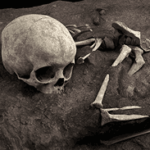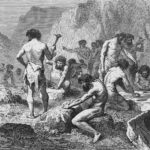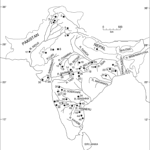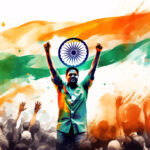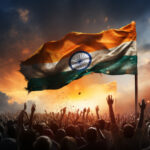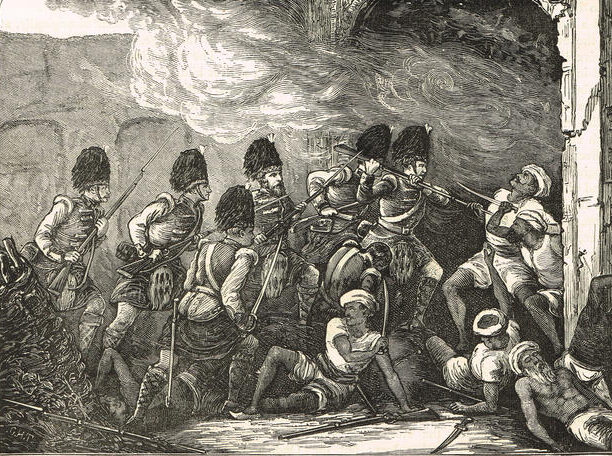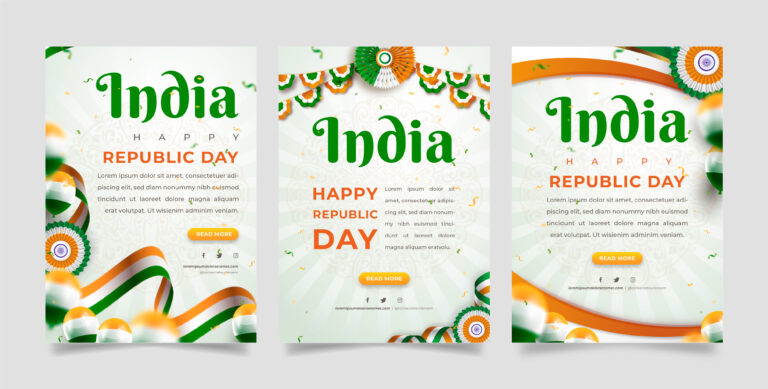Why Republic Day is Celebrated ?
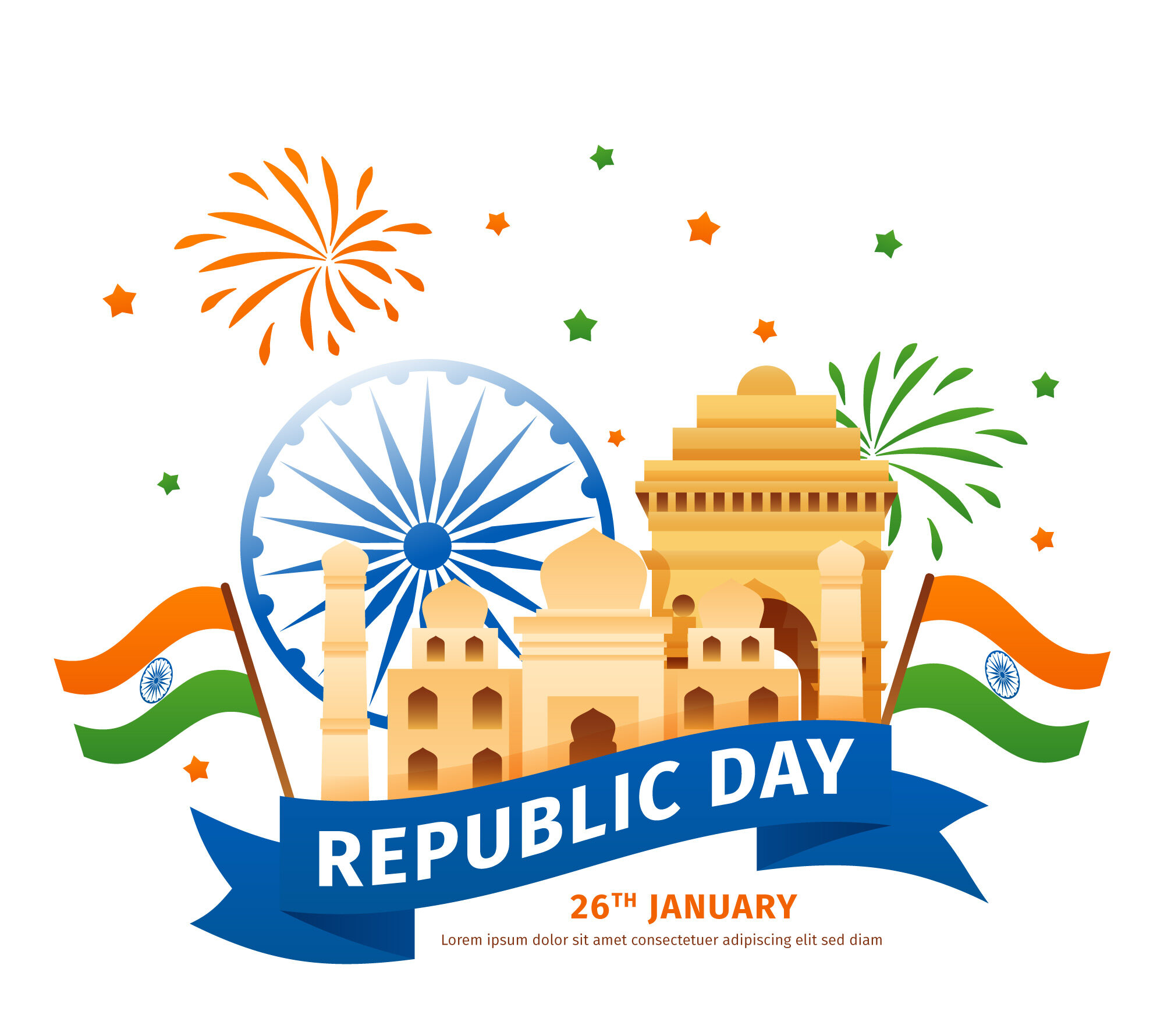
Do you know Why Republic Day is Celebrated India ? Republic Day in India is celebrated every year on January 26th to mark the historic moment when the Constitution of India came into effect. The significance of Republic Day lies in its multifaceted celebration of India’s democratic values, historical struggles for independence, and the diverse cultural heritage of the nation.
Why Republic Day is Celebrated ?
Historical Context:
The roots of Republic Day can be traced back to India’s struggle for independence from British colonial rule. The demand for Purna Swaraj (complete independence) was formally declared by the Indian National Congress on January 26, 1930, during its Lahore Session. This date was chosen to coincide with the anniversary of the Declaration of Independence. The day aimed to emphasize that India aspired to be a sovereign nation, free from British rule.
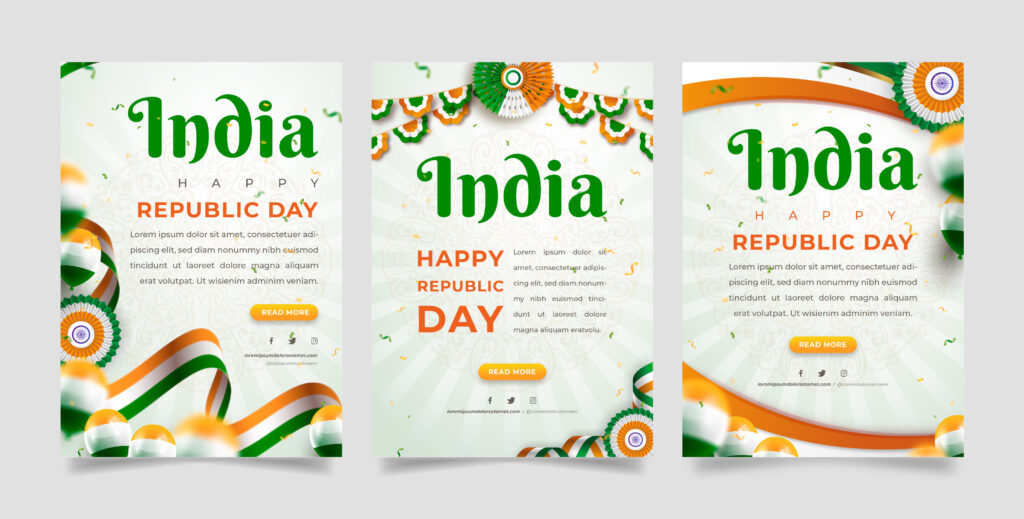
image is collected from freepik.com
Adoption of the Constitution:
The significance of January 26th deepened with the adoption of the Constitution of India. The Constituent Assembly, under the leadership of Dr. B.R. Ambedkar, worked tirelessly to draft the Constitution, which was adopted on January 26, 1950. This marked the transition of India from a British Dominion to a sovereign democratic republic.
Symbolism of Republic Day:
Republic Day holds immense symbolic value for the Indian people. It symbolizes the assertion of the principles of justice, liberty, equality, and fraternity, which are enshrined in the Preamble of the Constitution. The adoption of the Constitution marked the end of colonial rule and the beginning of a new era where the power vested in the people was codified in a comprehensive legal framework.
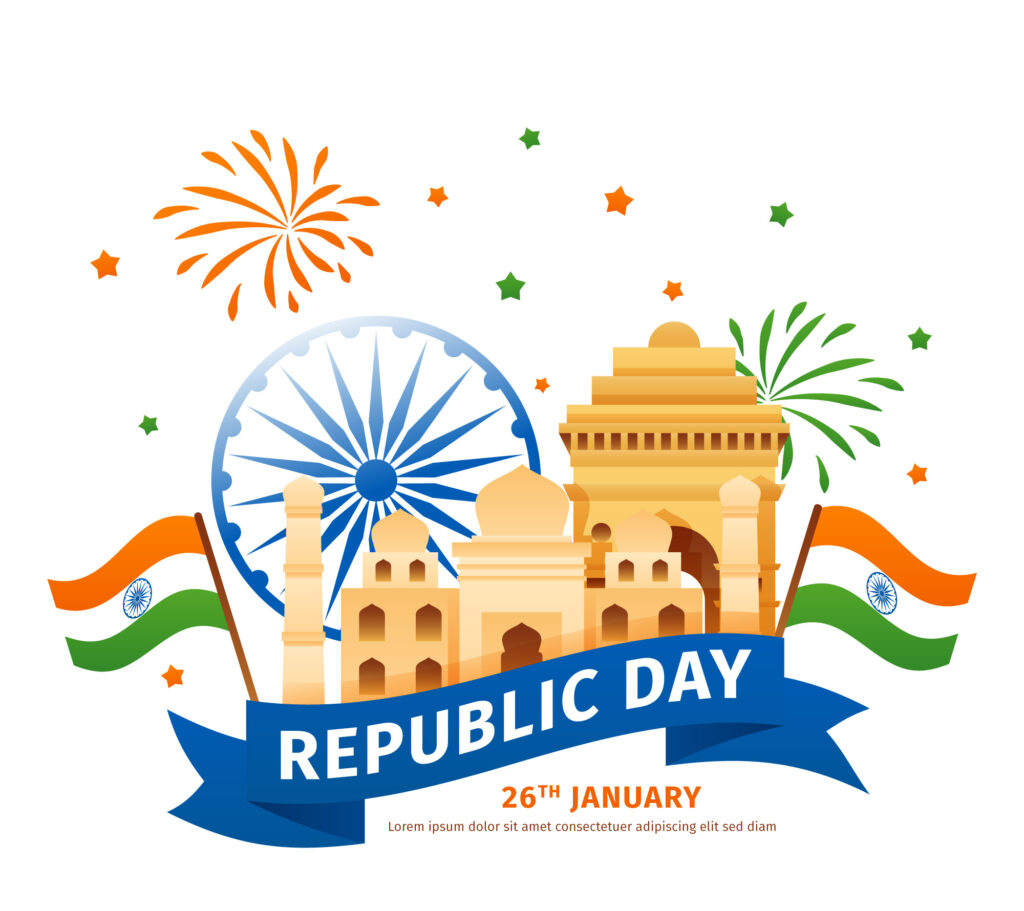
Declaration of India as a Republic:
On January 26, 1950, India was officially declared a republic. The term “republic” signifies a political order in which the supreme power resides with the people and their elected representatives. Dr. Rajendra Prasad was sworn in as the first President of the Republic of India on this historic day. The transition from a constitutional monarchy to a republic underscored the democratic ethos that became the guiding principle of the nation.
What is the History of Republic Day in India?
Celebration of Democracy:
Republic Day is a celebration of India’s vibrant democracy. It marks the triumph of the people’s will and their ability to shape their destiny. The democratic principles embedded in the Constitution establish the framework for governance, ensuring that citizens have a voice in the decision-making processes of the country.

Unity in Diversity:
India’s diversity is another key element celebrated on Republic Day. The parade in New Delhi showcases the rich tapestry of the country’s cultural, linguistic, and artistic heritage. Different states and union territories participate in the parade, presenting their unique traditions, dance forms, music, and art. This display underscores the unity in diversity that is a defining feature of the Indian nation.
Remembrance of Sacrifices:
Republic Day is also a day to remember and honor the sacrifices made by countless individuals during the struggle for independence. The day pays tribute to the freedom fighters who laid down their lives to secure the nation’s liberty. It serves as a reminder of the resilience, determination, and collective effort that went into the making of a free and sovereign India.
Ceremonial Observances:
The Republic Day celebrations are marked by various ceremonial observances, the most prominent being the grand parade held in the national capital, New Delhi. The President of India hoists the national flag, and the event witnesses a showcase of India’s military strength, technological advancements, and cultural richness. The march past includes contingents from the armed forces, paramilitary forces, and various schoolchildren, reflecting the unity of the nation.
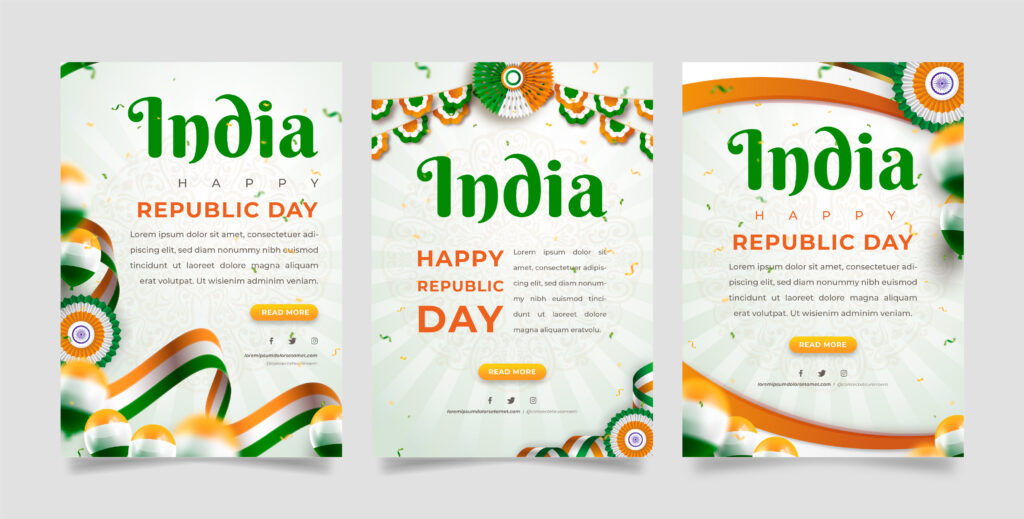
Global Significance:
Republic Day is not only a national celebration but also holds global significance. It underscores India’s commitment to democratic principles and human rights on the world stage. The celebration serves as a reminder of the power of non-violent resistance and the triumph of democratic values in the face of colonial oppression.
Educational Importance:
Republic Day also holds educational importance. It provides an opportunity for schools and educational institutions to organize events and activities that promote an understanding of the Constitution, democratic governance, and the history of the independence movement. Students actively participate in cultural programs, debates, and discussions, fostering a sense of civic responsibility.

Challenges and Aspirations:
Republic Day is also a time for reflection on the challenges facing the nation and the aspirations for the future. Leaders often address the nation on this occasion, outlining the progress made and the goals that lie ahead. It serves as a moment for citizens to introspect and recommit to the principles that define the nation.
In conclusion, Republic Day is a celebration of India’s democratic ideals, historical struggles, and diverse cultural heritage. It is a day to honor the Constitution, remember the sacrifices of the past, and recommit to building a just, inclusive, and prosperous nation. The celebrations not only unite the people in a shared sense of pride but also project India’s commitment to democratic values to the world.
About the Author
Sisir Mondal
Administrator
My name is SISIR MONDAL, I complete my graduate from University of Kalyani , West Bengal, India . I am like to build WordPress website and also developing this type of website . If you want your website , you can contact me trough email. thanks to visit this site.
